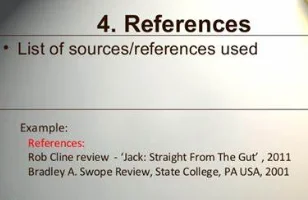How Old Sources for References and Literature Review should be

For many students, the question of how old or how recent the references should be in a paper is often confusing. In this comprehensive guide, we explore the age of your sources for a literature review or arguments in your paper, essay, thesis, or dissertation.
The issue of the recency of sources comes up because, in most cases, instructors fail to teach their students about referencing when it comes to their relevance and age.
Instructors focus more on how students should structure or organize their references as per academic conventions of writing formats such as MLA, APA, Chicago, Harvard, and so on.
How Old should your References be in a Paper?
The age of your references in a research paper should not be older than 5 years old unless otherwise stated. This applies where possible, as some papers require older sources.

Using recent sources gives you updated information, which improves your paper’s credibility and affirms the authoritativeness of your arguments.
However, this depends on the type of paper and its discipline. In some papers, you can use older references. For example, imagine your paper’s topic is the Cold War.
In such a topic, you can use references from the 1980s and 90s because the issue of the Cold War was particularly explored by scholars when it was occurring.
On the other hand, imagine you are writing about the socio-economic impact of Trump’s presidency in the United States. In such a topic, you will strictly use references of not more than 4 years because Donald Trump became president about 4 years ago.
From the examples above, it is evident that the paper’s nature and the context to be written will determine how old the references will be.
The point here is that you should know the type of paper you are going to write so that you can determine the age of the references to be used. Though this is the case, you should avoid references older than 6 years when writing a paper.
Combining the Age of Sources for Some Papers
Some papers require old sources, while other essays require recent sources. Also, some instructors are more lenient regarding the age of references used, while others are strict.
In that case, you can comfortably combine both old sources with the most recent ones. The content and context of the paper also determine how old the references should be.

For example, imagine being given a topic concerning the economic impact of COVID-19 in the United States, and you are required to come up with a 5-page paper.
Since this will be a research paper, you will use peer-reviewed sources to support your arguments and provide actual facts and statistics to reinforce the arguments.
In such a case, your sources will be as recent as the current month of 2020 because this is the year when the disease became a global pandemic.
You cannot use references older than that to support your arguments.
For historical papers, students can use older references because historical events are past documentation of occurrences that cannot be altered.
This is a straightforward example to demonstrate the importance of using relevant and age-appropriate references. The following sections discuss this issue in detail.
How recent should your references be in a paper?
Your references for your papers and essays should be as recent as possible and within 5 years of publishing. However, the topic of your paper determines how recent your paper should be. Through the references can be as recent as the year you are writing the paper.
This especially applies to topics that are based on current issues or trends. For example, topics revolving around COVID-19 fall under current issues, and therefore references as old as a few days from the time you are writing the paper can be used.

However, topics that are not centered on current issues should not use references that are extremely recent, like a few days old.
This is because the source has not had enough time to be analyzed by more scholars who could disapprove of the arguments or findings of the source material based on their scholarly approaches and research.
Read more on this issue in our guide on how old references should be so that you can learn in detail and get the factors involved.
Factors to Consider when Determining the Age of your References
One of the most important factors to consider when determining the recency of references is the year they were written.
In any piece of writing, the author(s) provide their names and the year, at times, the month and day they wrote it.
In scholarly writings, the name of the author(s) and the year of publication is always provided. Therefore, when determining the recency of references, look for the year the source was published.
The second factor to consider when determining the recency of references is the topic or the issues that are discussed within the source material.
As aforementioned, papers can discuss recent or trending issues, while others can discuss historical issues. If the topic of the source material covers recent issues, then the reference is recent.
On the other hand, if the topic discusses past or historical issues, then there is a great probability that the reference is old.
Finally, the writing and/or academic conventions used to create the source material determines the recency of references. Writing and academic conventions are constantly evolving.
The methods used to write and reference different types of papers, like APA, Harvard, and so on, have been changing.
Therefore, sources that use outdated writing and referencing conventions are old, while those using the latest conventions are the most recent.
How Old Should Literature be in a Literature Review?
Now that we have discussed the reason behind the question of how old your references should be let us delve into more detail concerning literature in literature review.
Ideally, the literature in a literature review should not be more than 5 years old from the time of publishing to when you are using it as a source for your essay, paper, thesis, or dissertation. However, this depends on the available resources and the topic you are writing on.
While some topics have so many sources of information, others are so recent and have fewer sources in the library to depend on. Therefore, consider a well-resourced topic when selecting it before writing the literature review.
As the name suggests, the literature review is the process of analyzing a particular topic from a critical point of view.
This means you will use various secondary literature to help support your claims within the literature review. This also depends on the type of paper you are writing.
There are different types of papers, and each paper utilizes a set of rules when it comes to referencing. Let us explore the age of the sources needed to write a paper.
Reasons for Using Recent Sources
One of the reasons behind this is centered on the literature review itself. What is the topic to be discussed? The literature review explores the current knowledge concerning the topic.

If other writers have explored the same topic, then it means that they have refined their findings because they have been building upon other writers’ works.
Therefore, it is imperative to use the most recent literature during a literature review. The more recent the literature, the more accurate its findings will be.
Another reason for using the most recent literature during the literature review is that older claims can be dismissed by recent claims.
Research is important because it helps us to understand the underlying factors that cause something.
If, for example, an author presented a claim 10 years ago, another author may dismiss the claim after a few years because of further research.
This is the reason why it is imperative to use the most recent literature to provide current knowledge concerning the topic.
What comes first; the Relevance or the Age of Essay Sources?
The answer to this question depends on the paper’s requirements. However, the relevance of the sources should come first. Relevance is defined as the relation of something to the matter at hand.
Therefore, if the sources are used to provide relevant and credible content about your topic, then their age does not matter. What matters is the credibility and applicability of the source’s information to your essay.
Though this is the case, some instructors will only accept the most recent sources because they provide current research concerning the topic at hand.
In such cases, it is best to provide the most recent sources while still considering their relevance.
However, there are some old sources that are used because of their authority. There are aged, highly cited old papers, and the reason why they are used is because of their source.
What should be noted is that while you will be required to provide recent sources in most of your papers, it is imperative to consider the relevance of those sources first. Not all sources are relevant to the topic at hand.
Final Advice
To conclude, we will advise you to consult your instructor and know his or her expectations concerning the age of your sources.
If instructors tackle this question with their students, then the issue of students using irrelevant references or references that are considered too old would not be rampant.




